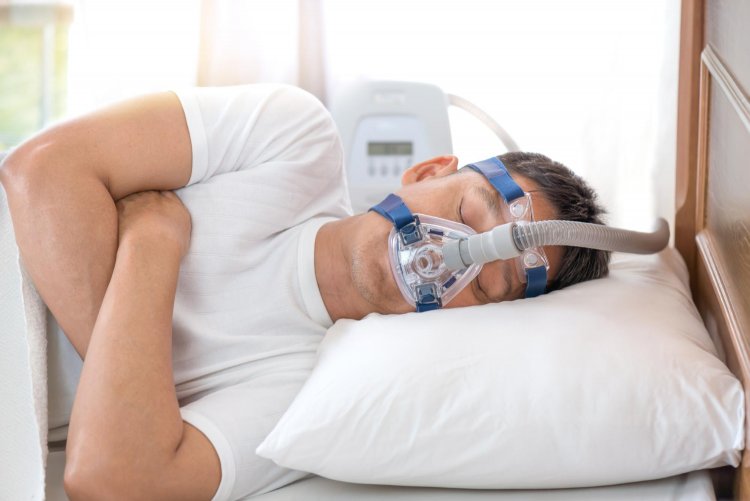Breathless Nights: The Battle Against Sleep Apnea
Sleep apnea is a prevalent sleep disorder characterized by recurrent interruptions in breathing during sleep. These pauses in breathing, known as apneas, can occur multiple times throughout the night, leading to fragmented sleep and various health complications if left untreated. Understanding the intricacies of sleep apnea, including its causes, types, symptoms, diagnosis, and treatment options, is crucial for individuals affected by this condition and healthcare professionals involved in its management.

Sleep Apnea: Types, Causes, Symptoms, Diagnosis, and Treatment
Types of Sleep Apnea
Obstructive Sleep Apnea (OSA)
OSA is the most common form of sleep apnea, accounting for approximately 84% of cases. It occurs when the muscles in the throat relax excessively during sleep, causing the soft tissues at the back of the throat to collapse and block the airway.
Central Sleep Apnea (CSA)
CSA is less common and occurs when the brain fails to send the appropriate signals to the muscles responsible for controlling breathing. As a result, individuals with CSA experience pauses in breathing without any physical obstruction in the airway.
Complex Sleep Apnea Syndrome
Also referred to as treatment-emergent central sleep apnea, this type of sleep apnea occurs when an individual initially diagnosed with OSA develops central sleep apnea after receiving treatment with positive airway pressure therapy (e.g., CPAP).
Causes of Sleep Apnea
Obstructive Sleep Apnea (OSA)
Several factors contribute to the development of OSA, including obesity, anatomical abnormalities in the upper airway (e.g., enlarged tonsils, a narrow airway), a recessed chin or overbite, and structural issues in the nasal passages or throat. Additionally, lifestyle factors such as smoking, alcohol consumption, and the use of sedative medications can increase the risk of OSA.
Central Sleep Apnea (CSA)
CSA is often associated with underlying medical conditions that affect the central nervous system's control of breathing. These may include heart failure, stroke, brainstem lesions or tumors, opioid use, and certain neurological disorders such as Parkinson's disease or amyotrophic lateral sclerosis (ALS).
Symptoms of Sleep Apnea
The symptoms of sleep apnea can vary in severity and may include:
- Loud and persistent snoring
- Episodes of breathing cessation during sleep, often observed by a bed partner
- Gasping or choking sensations during sleep
- Excessive daytime sleepiness (hypersomnia)
- Morning headaches
- Difficulty concentrating or experiencing memory problems
- Irritability, mood swings, or depression
- Decreased libido or sexual dysfunction
- Nocturia (frequent urination at night)
It's essential to note that not everyone with sleep apnea exhibits all of these symptoms, and the severity of symptoms can fluctuate over time.
Diagnosis of Sleep Apnea
If sleep apnea is suspected based on symptoms and medical history, a healthcare provider may recommend a sleep study, also known as polysomnography, to confirm the diagnosis and assess the severity of the condition.
Treatment Options for Sleep Apnea
- Continuous Positive Airway Pressure (CPAP) Therapy
- Bi-level Positive Airway Pressure (BiPAP) Therapy
- Adaptive Servo-Ventilation (ASV)
- Oral Appliance Therapy
- Lifestyle Modifications
- Surgical Interventions
In conclusion, sleep apnea is a complex sleep disorder with potentially serious health consequences if left untreated. From obstructive sleep apnea (OSA) to central sleep apnea (CSA) and complex sleep apnea syndrome, the condition requires comprehensive evaluation and tailored treatment approaches to address individual needs effectively.
#SleepApnea #OSA #CSA #ComplexSleepApnea #SleepDisorder #CPAP #BiPAP #ASV #OralApplianceTherapy #LifestyleModifications #SurgicalInterventions #Health #Wellness
Disclaimer:
The information provided in this article is for educational purposes only and should not be considered medical advice. If you have any health concerns or are experiencing symptoms, it is important to consult with a healthcare professional, such as a doctor or clinic, for proper diagnosis and treatment. Always seek the advice of your doctor or other qualified health provider with any questions you may have regarding a medical condition. Do not disregard professional medical advice or delay in seeking it because of something you have read in this article.
What's Your Reaction?





















